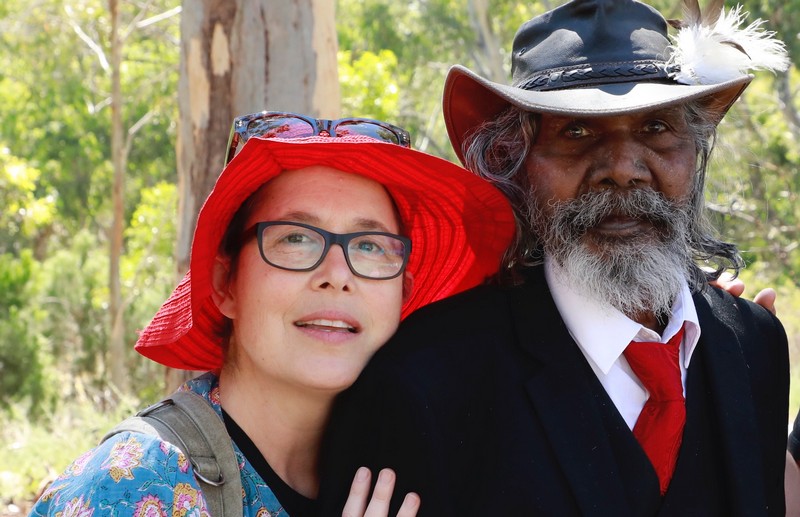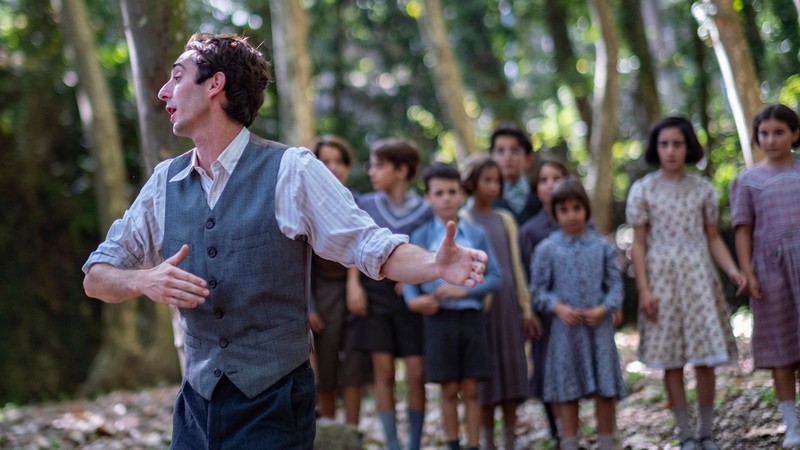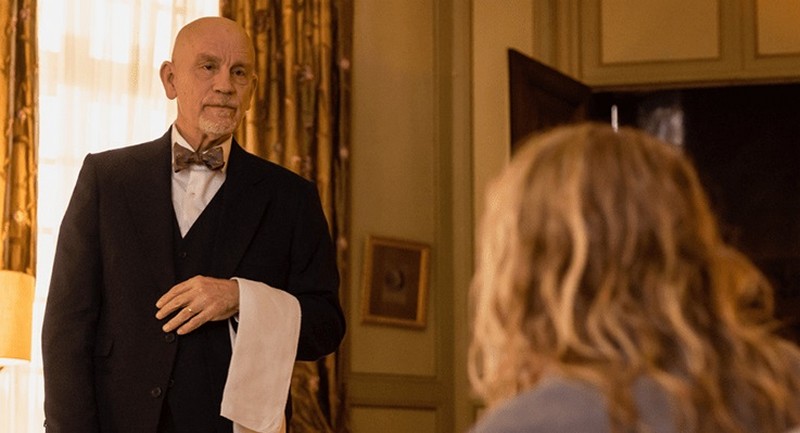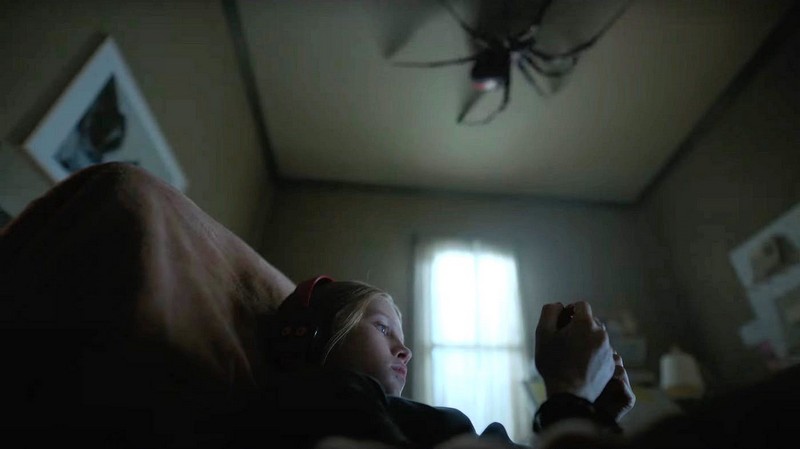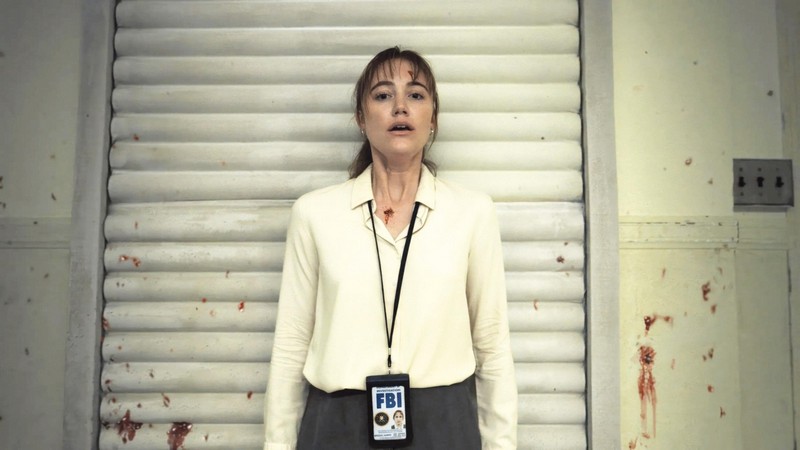David Gulpilil is one of Australia’s most prolific actors. After being randomly selected by Hollywood director Nicolas Roeg in 1971 for his film Walkabout, Gulpilil has gone on to have a half-century acting career with numerous classics of cinema.
My Name is Gulpilil is a documentary about David’s deteriorating health, as he reflects on his career and embracing mortality. Director Molly Reynolds discusses his legacy.
P: How did you get involved in the project?
M: David was diagnosed with a wide-spread stage four lung cancer. Rolf, who is a producer on the film and has made a number of films with David, and I decided that we should go and pay our respects, go and see how he was feeling and coping with it all.
We headed over and David was like, ‘good to see you both, let’s get to work.’ And we’re like ‘get to work? You’re not very well.’ And he’s saying no, no, no, we need to work. We felt the best way for David to get to work almost immediately was to begin to tell his final life story and boom! Away, we went. So, we ended up shooting for 67 days.

P: It seems like acting gives David a lot of purpose in life. Why do you think that is?
M: I think it’s because he so bloody good at it. He has an incredible physicality and as a young man, as a young, Yolngu man growing up, he was recognized not only as the best dancer, but the best hunter. You know, and that requires incredible skill.
I think that is why he became the actor that he did because he had this physicality about him and his culture brought out the very best of that.
P: How did you first come across David as an actor?
‘Storm Boy’. Yes. As a young one in the cinema, ‘Storm Boy’ was a really affecting film, especially for children. In our generation, there is a large number of us who became quite taken with David from ‘Storm Boy’.
The other one as well was ‘Crocodile Dundee’, there’s a whole other generation that was introduced to him then too.
P: You’ve worked on a number of Indigenous projects in the past. Where does your passion and interest come from for those communities?
M: I think it’s something that once you hit in a certain direction, often it is very hard to take detours. I suppose if I had wanted to take those detours, I would have. It’s almost alike the nature of relationships and obligations, and the way in which things come up.
So, for Charlie’s Country, for example, Rolf had gone to visit David in prison and David was again keen to work and they concocted Charlie’s Country.
And I’m like, hang on. There’s so much stuff, so many other stories to tell related to that. So up came Still Our Country and Another Country. It’s sort of how those things go, you know. And having a relationship with David and going to see him because we are connected to him, and him sort of saying, ‘okay, well, what are we going to do together?’, and us finding the best way to do it.

P: In regards to David, he’s such a great storyteller in the documentary, and in real life as well. Do you have a favourite anecdote of his that is either in the documentary, or didn’t make it in?
M: Yes. In terms of David’s story… look this is a story, and he tells stories, so if you asked me to verify it, I’d say look, I don’t think I’d be able to do that. But when he arrives in England, apparently he was one of the first, and so they dressed him in a Laplap, which is not culturally appropriate, and had him walk down the stairs in the snow. Now, whether this happened or not, I don’t know, but it just cuts for such a great visual, doesn’t it? You know, they make a man heading down the steps of a Qantas aeroplane like that.
P: Those sorts of stories exemplify the split identity he’s had to deal with over the years. Even in the documentary he says he lives in between the Western world and the Aboriginal world. How do you think that dichotomy has affected him particularly later in life?
M: Look, I think I’m slowly working this one out because David has such a robust sense of self. He declares in the doco, ‘I’m the greatest dancer in the world, just for me that is.’ That’s like, I don’t care what you think, it’s just what I think.
He fell away, as he says, ‘I’m a drunken alcoholic’ and he succumbed to all that. And I think it would be partly because while he had that strong sense of self, he didn’t feel as though he belonged anywhere. He was sort of a little adrift from his own culture, even though that had made him an outstanding performer, he didn’t really belong in the dominant culture. So, I think he managed it just by getting so completely smashed that he didn’t really care or notice.
P: You touched a little bit on David as a performer, and the entire documentary has David as the driver of his own story, in his own words. There are no interviews, it’s just him. Can you tell me a little bit about that decision, why you chose to have David tell his own story?
M: Well, partly because yes, he’s a black fella and too often we have others, you know, even me right now as a white fella speaking on behalf of David. But I disappear, you know, the film itself stands well beyond me.
That was the main reason for doing so. To say, okay then, David, you tell it as you would like to. And given that he’s such a consummate performer, since he really knows how to embrace the camera, it was such an easy decision to make.
P: David in the documentary says that as an actor the camera just finds him. There’s no acting involved. Considering he doesn’t come from any sort of film or acting background, where do you think that natural screen presence comes from?
I think right back to where we started, you know, he’s physicality enabled him to excel at what was essential to his culture, you know, the dancing and the hunting. And he also has the ‘it’ factor, there is something charismatic about David, yet the nature of defining that proves to be elusive. I also think it’s his innate capacity to perform.

P: How would you describe David’s impact, not only on the indigenous community and storytelling, but also on Australia cinema in general?
M: For me, it’s very clear that David was the first. Not only the first onscreen, but the first to be able to act on the screen and his capacity to act meant that he could hold his own against everybody else that he was playing with.
We can look at Walkabout with the two young children. He was not additional in that, he kept it together. In Storm Boy, he was not just a black fella teaching the young boy, he was Fingerbone Bill who was a very well-defined character and formed a relationship with the young boy.
P: What do you think David’s story reflects about Australia?
M: Oh, goodness. You’ve asked one hell of a question. For me, David is one of our great Australians. This is a film about us. It’s about Australia. You know, David has been in many significant Australian films. If you want to look at the cross-cultural history of the country, then David gives it to us. If it’s Rabbit Proof Fence, if it’s The Tracker, if it’s Storm Boy. He gives it to us.
My Name is Gulpilil releases nationally on May 27.
Patrick Scott
Other reviews you might enjoy:
- Timothy Spall (Mrs Lowry and Son) – interview
- Be Natural: The Untold Story of Alice Guy-Blaché – movie review
- Shahn Devendran interview – Unheard

Patrick Scott is a recent graduate from Monash University with a Bachelor’s Degree in Media Communications. He is a freelance film reviewer based in Melbourne, and contributor to The Blurb.

